The Open Theatre's Nightwalk in London in 1963. Image courtesy of Donald Cooper/Photostage/Kent University
|
To the Young Vic to see reading-group regular the wonderful Anthony Ofoegbu in Conundrum, the new Crying in the Wilderness show much delayed by covid shutdowns. I'd seen a shortened earlier version of it live-streamed without an audience as part of the Hackney Festival in (I think) the middle of last year, so I had a rough idea what to expect. But impressive though that was, it hadn't prepared me for the electrifying impact of this extraordinary piece experienced live in the Young Vic's Maria space and with a fairly substantive audience. This was presence in its richest, intensest and most lyrical form; presence transmuted into grace; earnest and elegant. Ofoegbu's performance had a full-on, grounded, gestural power, its emotional terrain beautifully, intricately and precisely parsed; expansive without being showy; extravagant but intensely humble in its commitment to the raw emotional truth. Dancing on the edge of a volcano. And executed with an air of fluent, jazz-jamming, improvisatory playfulness. So refreshing to see a performance commit to the weight and heft of human experience, and to do it with such craft and amplitude. It was almost a dance show at some points, a kind of lyrical, magical Pina Bausch experience. Or Chaikin-esque, even. Theatre in the UK now seems often to have lost its full-on engagement with raw human experience, any sense of import and significance 'in the moment' that could shade it out of naturalism and towards a necessary ritual, even into the heroic perhaps, without irony or cynicism on the one hand or portentousness on the other. Van Hove's View from the Bridge surely had it, teetering on the edge of bathos with its use of the Faure Requiem but somehow holding the line, drawing us into a vortex of seriousness, significance: beauty fathomed from chaos, elegant order plucked from the urgency of raw abject feeling.
The play itself seemed expanded and yet somehow more elemental, more terse, than I remembered from the earlier live-streamed version. It must surely be the most rawly and purely expressionistic piece of theatre London has seen in a long time. It could almost be channeling something by Georg Kaisar from Berlin in the '20s, performed by a reincarnated Emil Jannings.... Ofoegbu's performance has some of the glory, intensity and scale of gesture that proper expressionist acting must have had before it succumbed to hammy un-rooted exaggeration and the aspic-afterlife of silent film and pop-culture cliché. A man - (appropriately, poignantly) 'Fidel' - confined to a square of memory, exhorting the audience to understand, to sympathise, to recognise.....to attend. Like an emotionally desperate version of Beckett's Krapp; an Artaud figure desperately throwing biographical ballast out of a rapidly descending (and perhaps alight) airship, or perhaps more accurately a Dostoyevsky character reporting from deep underground, he leafs through touchstone relics of a childhood of seeming promise and an early adulthood of thwarted ambition. All of which triggers for him the memory/enactment of subsequent experiences of anti-psychotic medication and incarceration. As a child, encouraged by his mother, he had memorised and could recite the scientific names and intricate functionings of the organs of the body, but the jobs he subsequently applied for (and for which he was apparently 'over-qualified') were for lowly medical admin positions. He was apparently repeatedly told not to get 'above himself'. However his instructors' lack of belief in him was not shared by his mother. Now in his 40s, in a kind of performance space limbo, he tries to establish who he is and to substantiate and fortify a core identity by mobilising his old childhood tricks of reciting biological nomenclature. In a way it's like a superannuated child-performer essaying the faded glory of an old showbiz routine. Writing, inscribing, seems also to be his way of holding on to something, as he scribbles the mentally-retrieved outcomes of his anatomical knowledge onto the already heavily-inscribed floor. None of what he evokes is in anyway substantiated or fleshed out with 'situational' detail, but that surely is not the - rawly expressionist - point. The performance is a heart-rending evocation of pure subjective experience, pure interior struggle and emotional response - a cry in the wilderness. And the cry is a physical, danced, spoken poem and incantation, a desperate last-chance rain-dance for success, fulfilment and acknowledgment . This is not a wholly solo show. The spare, hugely effective and deeply disturbing intervention of a drug-dispensing psychiatric nurse to an utterly abject, foetal-crouched Fidel offers something of a context and frame, but is still experienced by the audience from and through the margins of consciousness and memory of Fidel himself. A touch of late Sara Kane, here, 4.48 Psychosis. What situational context there is, or at least can be inferred - or is likely to be projected - by the audience (and the whiteness of the nurse, amongst other things, is clearly significant here), is that there is a racist dimension to all this (the performance's debt to - or inspiration from - Ralph Ellison's Invisible Man is referenced repeatedly in the text) But beyond even this, this is the cry of the abject, rendered beautiful. Attention must be paid. Like all good expressionist theatre, there is something universal, archetypal about it. It speaks to the unheard, abandoned child in all of us, surely Later on, as Fidel struggles to define himself, to cling to the objects and personal affordances that might fortify his sense of self, he seems to experience an epiphany: 'I know who I am' he cries. But does he? And what in any case might that mean, for him and indeed for all of us? Fidel may simply be in the grip of psychosis, but then in our desire to know in simple terms 'who we are' maybe we all are. Maybe contemporary culture and its obsession with individual identity, rather than the subtle, supple and silent bonds of connectedness, has driven us all mad. At the end of he piece Fidel shuffles out, endlessly repeating the "I know who I am' line as if it were a broken, last-remaining talisman, a set of secular rosary beads, a failing open-sesame. Some of the reviews have praised Ofoegbu's performance while expressing reservations about the play's lack of situational detail. But its impact surely does not come from any intention to directly and clinically diagnose and indict injustice via a Brechtian showing of the social mechanisms of oppression, but surely comes rather though a physical and verbal 'singing' of the emotional experience and impact of the perception (accurate or inaccurate) of oppression. And even here - in relation to what we the audience can construe of the hard forensic situational details of Fidel's story - Conundrum (the clue perhaps being in the title...) is surely a much more complex and nuanced piece than some reviews have allowed. Its expressionist approach and our consequent slightly myopic submergence in his emotional world surely allows at least the possibility that Fidel is the classic unreliable narrator, or at least the partially informed one. Are we to fully empathise with Fidel or to at least partly also recognise the possibility at least of an unbalancedness; to observe his incipient psychosis, his appalling psychological distress, his apparently partial conception of intelligence and success, and so be drawn to question his diagnosis of the reasons he has been thwarted in life? That is not to say there is no social and political indictment being offered here, but to suggest that it is a more complex and nuanced one, and one that helps to sharpen and enrich audiences' responses. We are surely being challenged not simply preached to or asked to uncritically agree with the emotive perspective offered. As a child, encouraged by his mother, Fidel seems to have come to equate intelligence with rote-learning, and for that to be dependent on continual reinforcement by his mother. In which case perhaps the real social inditement offered is that no teacher, no mentor, no cultural context was available to Fidel as a child to introduce him to the real, nuances, ratiocinative, probing nature of intelligence, or of the many forms in which 'intelligence' comes, and in relation to which rote-learning is at best a handy trick and at worst a trap. Is this response intended by the makers of Conundrum? Surely such a reading is at least legitimate. As he finally walks off mumbling about 'knowing who he is' there are shades also of Koltes's 'I am Roberto Zucco', and even more of Dostoyevsky's Underground Man: Fidel is a revealing and informative product - rather than an accurate chronicler - of wider social and structural ills. Dramatic irony is surely at play here The result (especially in relation to a performance of the quality offered here by Ofoegbu, and a script and direction as boldly elemental as Paul Anthony Morris's) is that we acknowledge Fidel's feeling of oppression while being challenged and intrigued to probe further into its cause. Regarding this we both conditionally infer whatever we can glean from the action, but also we are challenged to induct evidence from our own relevant experience and wider observation This is surely the best of many worlds, and an element of grown up theatre. Maybe it will take audiences time to 'get' this kind of earnest, rich, intense work (the audience tonight seemed at times a little non-plussed) but hopefully they will have many more changes to savour its quality
0 Comments
Monday This evening the second PRESENCE `public zoom 'prepared' reading of the year - both within two weeks (in collaboration with Quebecois company BoucheWHACKED). And both events are/have been of new plays by Nathalie Boisvert. Last time (17th January) it was her make-up-artist psychodrama FACELIFT, brilliantly read by Rachel Bavidge, Mufrida Hayes and Fiz Marcus (a full account on our reading group blog soon, I hope). Now, after only a couple of brief zoom 'rehearsals': ANTIGONE IN THE SPRING. Three hugely exciting young actors and with, again, Nathalie and this time translator Hugh Hazelton joining from Canada. A few technical 'signal' hitches derailed things slightly at the start (ironically it was the signal from Stoke Newington rather than the one from Quebec that caused the problems) but some quick thinking from one of the actors (Lewis Bruniges take a bow) in migrating to an iPhone solved the problem and actually added to the richness and appropriateness of the evening's visual aesthetic (the characters turn out to be in a kind of post-death limbo - maybe even each in different ones - so Etiocles's lonely confinement to iPhone limbo seemed not inappropriate somehow as expiation for his behaviour during the play. The script - a contemporary re-configuring of the myth - is superb, a kind of tragic 'memory' play enacting the eventual reconstitution of a family previously fractured by private and public trauma having been drawn into a centrifuge of opposing political and cultural stances. Hearing it now, the play has the precision and clarity of a graphic novel; a sense of swirling, unresolved relationships and in Hugh's translation a stark, urgent verbal lyricism. As the three characters (siblings Antigone, Eteocles and Polynices) tell, conjure, (re-)negotiate and re-enact the events of the story we realise they are both re-experiencing and properly processing them for the first them as a joint enterprise, using the re-telling to rediscover and affirm their relationship, the bond and inspiration that drives their resistance to the the incipient-fascist state that has in life been slowly encircling them The three performers - Lewis Bruniges, Rebecca Lee and Joe Reed - show huge commitment, and are vividly responsive to the material: fresh, urgent and nuanced in ways that utterly bely the very limited prep time over the days prior. The response is great from participants and attendees alike. And hopefully there will be a report of this session also on the reading group blog soon We've been developing use of this format - zoom 'public' 'webinars' with a few brief prep sessions on zoom prior - over the last few months and they seem to be working extremely well. The prep sessions don't allow time for detailed work, but they do usually set a framework and trajectory that give the actors confidence to commit and discover in the readings themselves. That 'framing and priming of spontaneous response' is very much the core ingredient of our reading group ethos and approach. And the results have been frankly stunning. It seems like everyone benefits: the actors report having a satisfying creative challenge; the writers and translators get to hear their scripts rendered with commitment and grace, and the attendees get a great experience of live 'virtual' performance of novel, high-quality, innovative material. We have plans for continuing the format and expanding the range of repertoire, alongside the (clearly imminent) transition back into real spaces. Wednesday In light of the above reflections on Conundrum, a quote from Joe Chaikin seems very relevant and apposite today (if - typically for its time of course - inappropriately restrictive in gender attribution) 'The actor is able to approach in himself a cosmic dread as large as life. He is able to go from his dread to a joy so sweet that it is without limit. Only then will the actor have direct access to the life that moves in him, which is as free as his breathing. And like his breathing, he doesn’t cause it to happen. He doesn’t contain it, and it doesn’t contain him' Thursday By way of contrast, perhaps, to see Dear Evan Hansen. It is a very sharp and shaped evening; the creation of a very well-worked and burnished, punchy myth for our time - what might be termed a social myth, a configuration of the social isotherms via dramatic-situational analogue. Here is surely necessary root canal work on the prevailing zeitgeist. Like Conundrum and indeed Antigone in the Spring, it finds a sharp. clean-lined clarification of aspects of where we find ourselves. In fact it is a 'meta' myth of the self-interested crowd-sourcing of a myth, almost a religion, via the channels of social media. A huge and fake imago wish-fulfilling constellated need and desperation is erected above a querulous and pained human reality. The piece itself is clearly the fruit of a joy of collaboration between writers and director and with a cast riding the well-oiled rails with precision and attack and just the right level of emotional heft. It's also a delicate and perilous thing as its beautifully honed artificial aerofoil tries to stay in balance and focused amidst the deep emotional draughts it whips up. The balance between empathy and horrified censure is beautifully maintained, the latter just suspended during the first half. All represented constituencies - the teenagers, the parents struggling with the novel experience of raising kids in the internet age - are given their due. This is Brechtian theatre but with an empathic heart. It could be the bleakest and most ruthless of satires, but the heart means we are terrified in anticipation of (rather than relishing the prospect of) the awful train wreck that seems inevitable. But the real miracle is the modulation into the finale. The piece has the courage to completely change gear, for the angsty internet to evaporate towards the pastoral, and we are left, finally, in an orchard, and with forgiveness, and with the recognition of the messy complexity of organic growth and self-reliance. From Zukerberg to Thoreau in two hours. If I was to be really picky, I think the transition is slightly mis-handled, I think there should be a little more of the parents' decision to not pursue the boy who has made the almost inadvertent , damned-by-degrees Faustian pact with the social-media demons, with devastating impact on the parents themselves and the families involved. Here there is an assumed rather than dramatised shift (the parents just drift off. Their choice surely needs to be at least kept in play and at a least vestigially dramatised, rather than their decision assumed and perfunctorily reported after the event). But the recognition of partial good, and the 'escape' from dramatic, ethical and causal linearity, from Old Testament to New Testament, via a very Old Testament myth of temptation in an orchard....is a joy to behold in its nuanced, filamental intricacy and 'romance-inspired' release from intensity to broad, inclusive amplitude, Maybe its the context here, but couldn't help thinking of Chaikin's The Serpent in regard to where we end up. Friday And a brilliant way to end a productive week: the regular monthly Presence professional-actor play reading group, this time spending a delightful afternoon reading and exploring Robert Holman's The Overgrown Path. This extraordinary, rich, compassionate, insightful and detailed play will be the subject of a separate blogpost soon, but just to say here: so refreshing to be engaging with such thoughtful work in the relaxed, attentive and mutually-supportive company of such a great group of fellow practitioners amidst the joy of shared discovery. The play itself is a wonderful chamber piece that refreshingly attends to the fully and uniquely human, in relation to huge historical events. It lets us live and breathe with the characters, who are more themselves than being simply representations of wider things, though the latter is cunningly part of their DNA too. It is, amongst other things, about the difficulty of mapping predictive stories onto the vicissitudes of events; the difficulty of planning and plotting a course through life, and it boldly exemplifies and makes use of chance events, yet at its conclusion the central characters despite tragedy have achieved through their own efforts a kind of narrative closure that is an atonement, a completing of a story, the re-engineering of a large myth - a tragedy - to end with a small moment of individual redemption allied to the positivity of chance. The worst does not always happen, or if it does, not necessarily with uniformly negative consequences. Robert Holman's art as a playwright is almost a lost one now - his work is arboreal; his play seem to grow organically rather than to be constructed.
|
Present MomentsAn occasional diary/reflection on events and experiences from a presence-ey perspective ArchivesCategories |
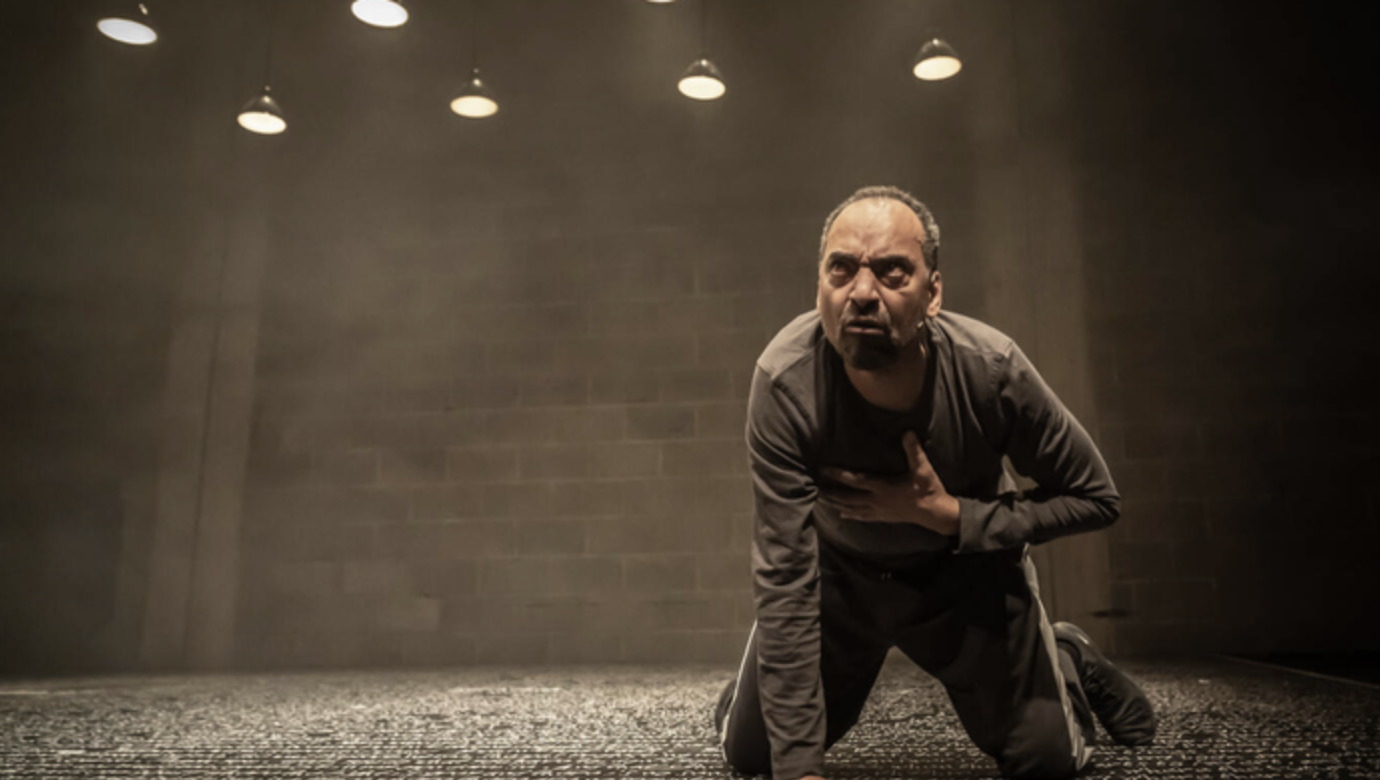
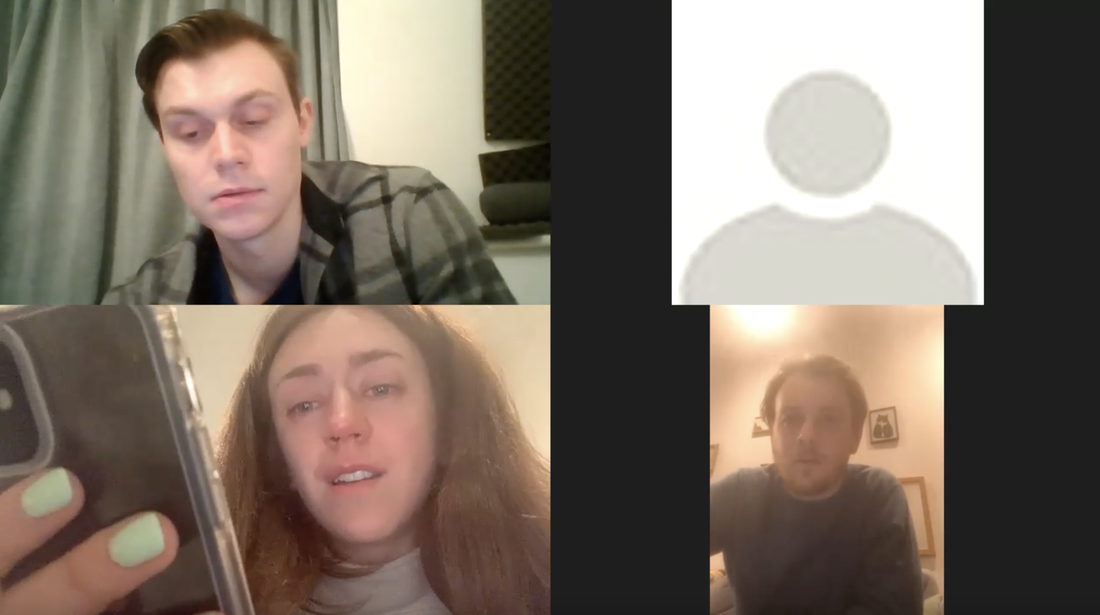
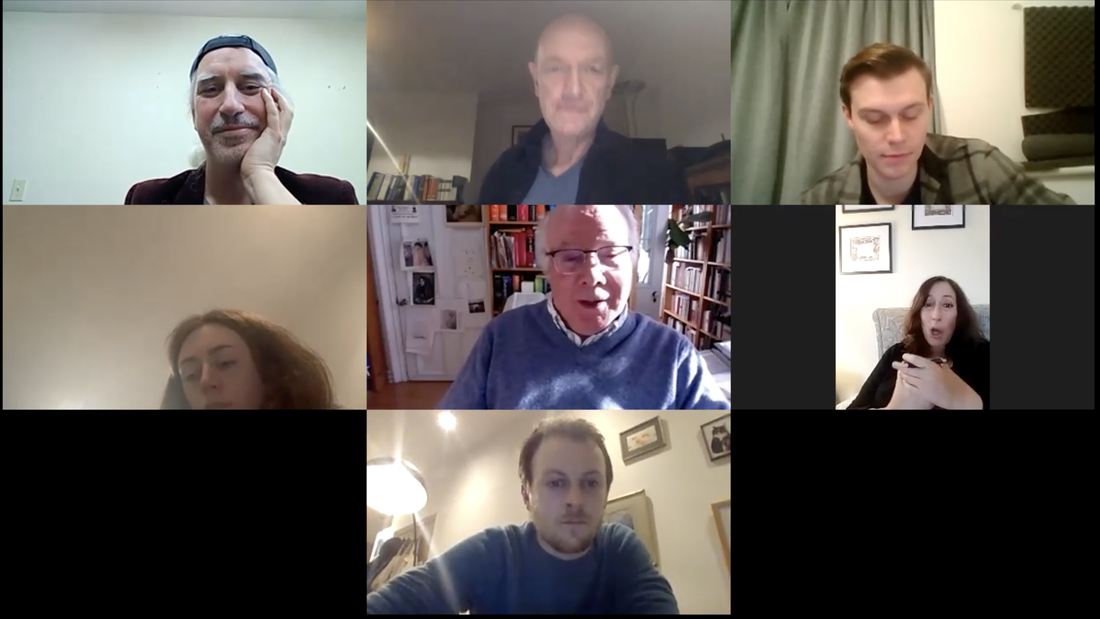
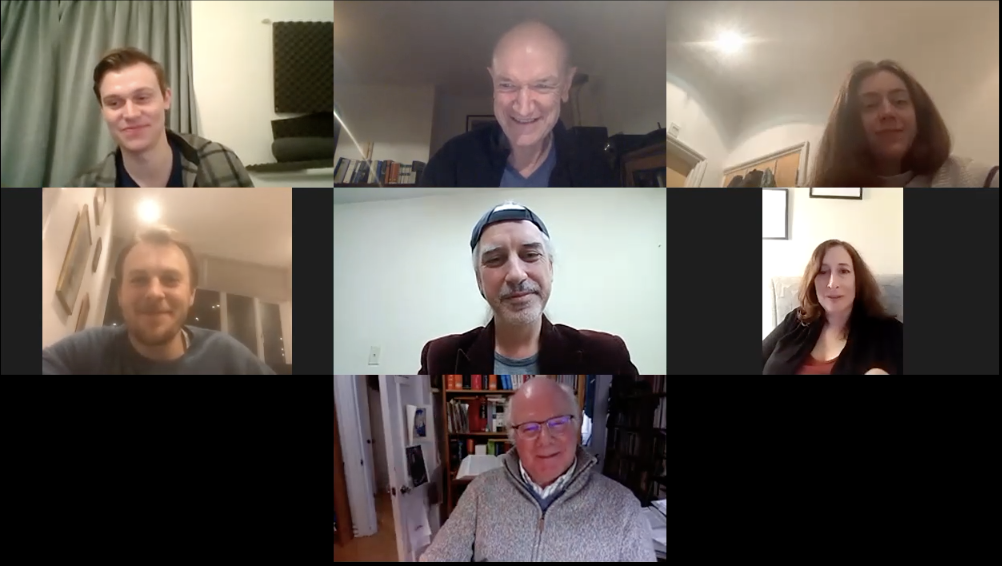
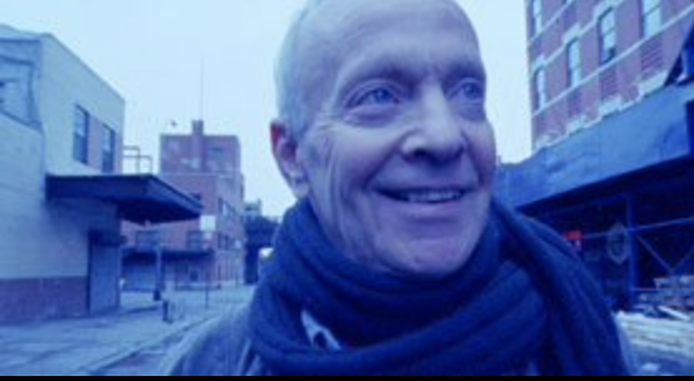
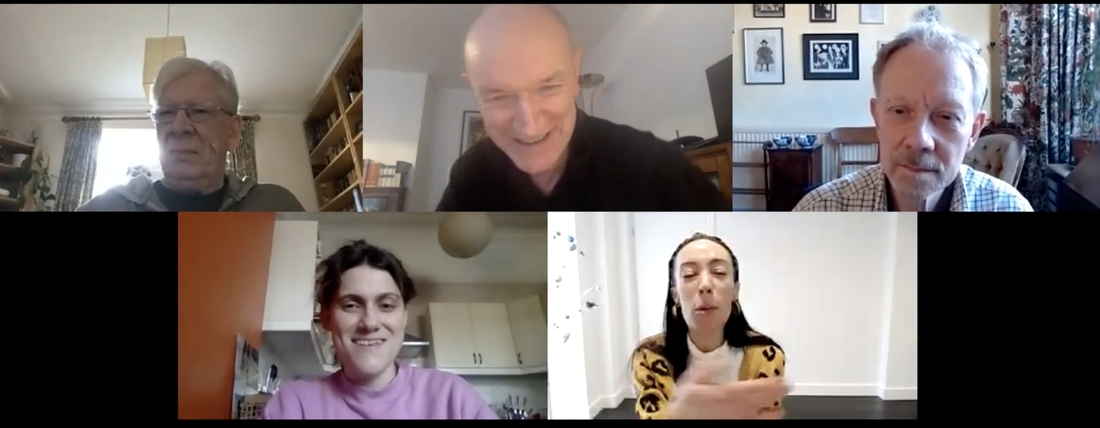
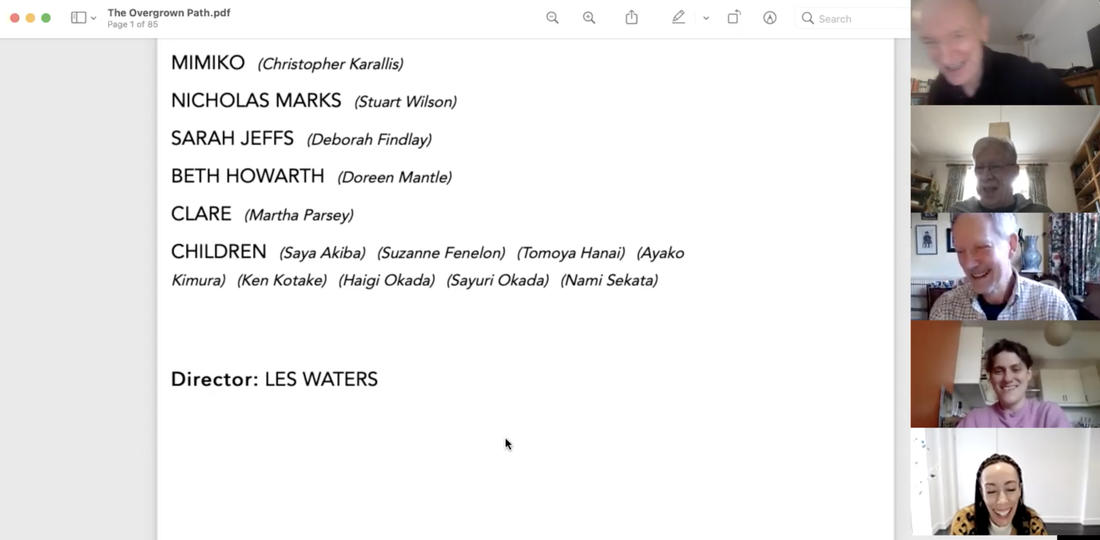
 RSS Feed
RSS Feed
